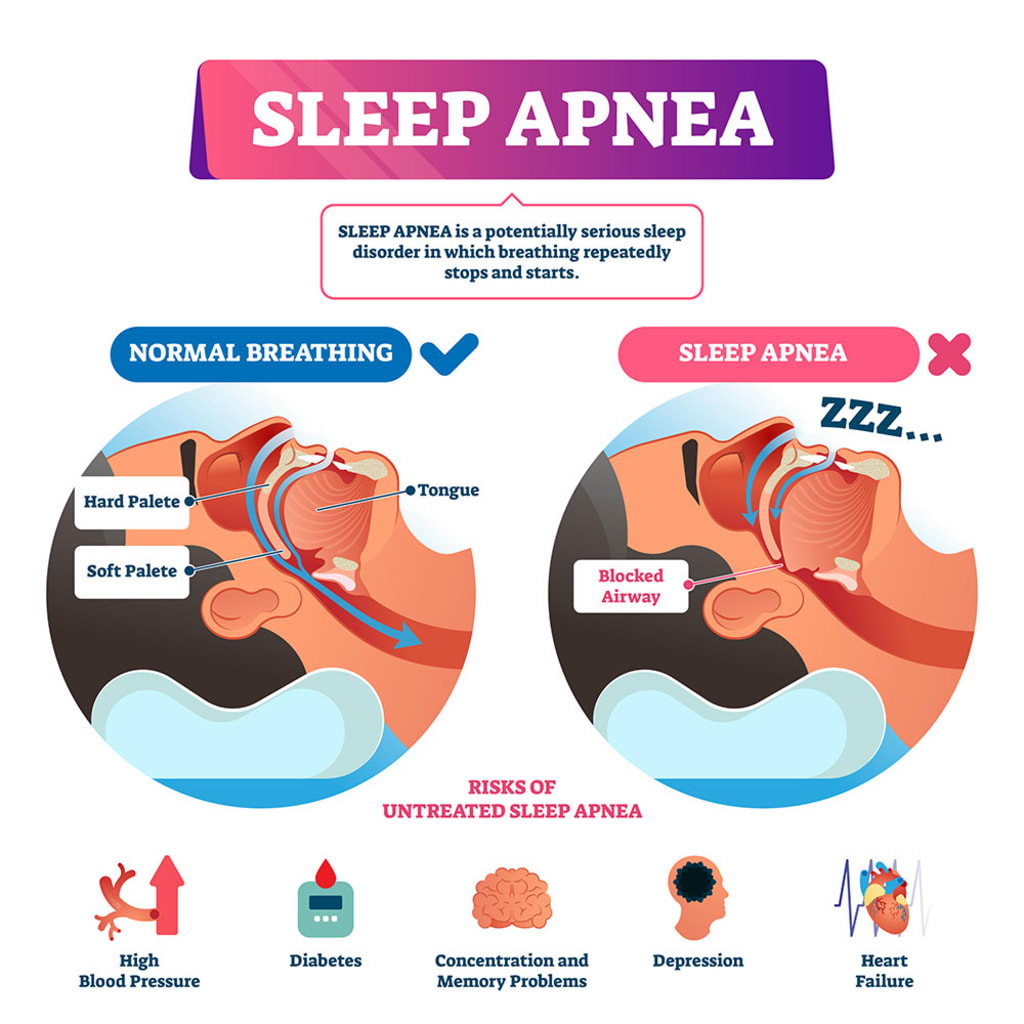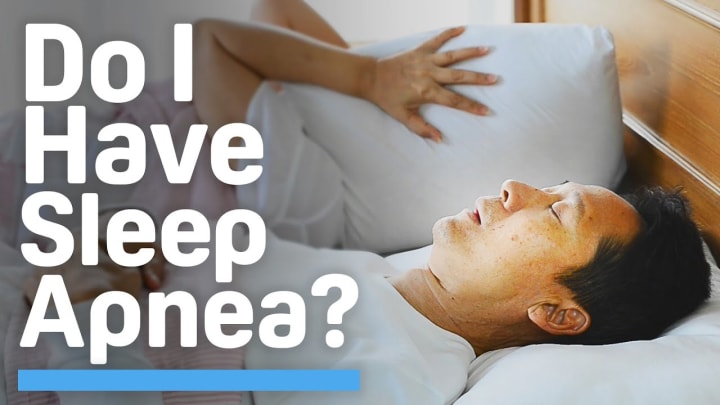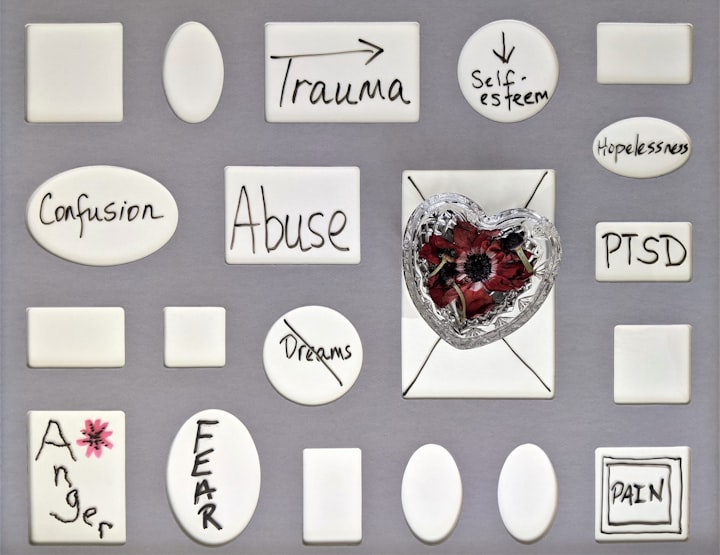
Sleep apnea is a sleep disorder that affects millions of people worldwide. It is characterized by pauses in breathing during sleep, which can last from a few seconds to several minutes. These pauses can occur dozens of times an hour and can cause a wide range of health problems, including daytime fatigue, high blood pressure, and even heart disease. In this blog, we will explore sleep apnea in depth, including its causes, symptoms, diagnosis, and treatment.

Causes of Sleep Apnea
Sleep apnea can be caused by a variety of factors, including genetics, obesity, and lifestyle habits. The most common type of sleep apnea, obstructive sleep apnea, occurs when the muscles in the back of the throat fail to keep the airway open during sleep. This can be caused by excess weight or obesity, as well as other factors such as alcohol consumption, smoking, and nasal congestion. Central sleep apnea, on the other hand, is caused by a problem with the brain's ability to control breathing during sleep.
Symptoms of Sleep Apnea
The most common symptom of sleep apnea is loud snoring, which is caused by the narrowing of the airway during sleep. However, not everyone who snores has sleep apnea, and not everyone with sleep apnea snores. Other symptoms of sleep apnea include pauses in breathing during sleep, gasping or choking during sleep, morning headaches, and daytime sleepiness or fatigue. People with sleep apnea may also experience irritability, difficulty concentrating, and mood swings.
Diagnosis of Sleep Apnea
If you suspect that you may have sleep apnea, it is important to speak with your doctor. They may refer you to a sleep specialist, who can perform a sleep study to diagnose the condition. During a sleep study, you will spend the night in a sleep lab, where your breathing, heart rate, and other vital signs will be monitored while you sleep. This information will help your doctor determine if you have sleep apnea and what type of sleep apnea you have.
Treatment of Sleep Apnea
The treatment for sleep apnea depends on the severity of the condition and the type of sleep apnea that you have. For mild cases of sleep apnea, lifestyle changes such as losing weight, avoiding alcohol and sedatives before bedtime, and sleeping on your side may be effective. For more severe cases of sleep apnea, a variety of medical treatments are available.
Continuous positive airway pressure (CPAP) is the most common treatment for sleep apnea. This involves wearing a mask over the nose and/or mouth during sleep, which is connected to a machine that delivers a steady stream of air to keep the airway open. Other treatments for sleep apnea include bilevel positive airway pressure (BiPAP), which delivers air at different pressures during inhalation and exhalation, and adaptive servo-ventilation (ASV), which uses a computer to adjust the pressure of the air delivered based on the patient's breathing patterns.
In some cases, surgery may be recommended to treat sleep apnea. This may involve removing the excess tissue from the back of the throat, repairing a deviated septum, or correcting other anatomical abnormalities that are contributing to the condition.
The Importance of Treating Sleep Apnea
Untreated sleep apnea can have serious health consequences. It can increase the risk of high blood pressure, heart disease, stroke, and diabetes. It can also lead to complications during surgery and pregnancy. In addition, sleep apnea can have a significant impact on quality of life, causing daytime fatigue, irritability, and difficulty concentrating.
Sleep apnea is a disorder that affects breathing during sleep, causing repeated interruptions to breathing that can occur dozens of times per hour. There are three types of sleep apnea: obstructive sleep apnea (OSA), central sleep apnea (CSA), and complex sleep apnea syndrome (CSAS).
Obstructive sleep apnea (OSA) is the most common type of sleep apnea, accounting for around 84% of all cases. It occurs when the muscles in the back of the throat fail to keep the airway open during sleep, leading to repeated pauses in breathing. This can cause snoring, choking, or gasping for air during sleep, and can lead to daytime sleepiness and fatigue.
Central sleep apnea (CSA) occurs when the brain fails to send the appropriate signals to the muscles that control breathing during sleep. This results in periods of time without breathing, which can cause sleep disruptions and other health problems. CSA is less common than OSA, accounting for around 15% of all cases of sleep apnea.
Complex sleep apnea syndrome (CSAS) is a combination of OSA and CSA, and is also known as treatment-emergent central sleep apnea. It occurs when someone with OSA is treated with continuous positive airway pressure (CPAP) therapy but then develops CSA symptoms.
Risk factors for sleep apnea include obesity, smoking, alcohol consumption, family history, being male, and having a thick neck circumference. People with certain medical conditions, such as hypertension, diabetes, or heart failure, may also be at an increased risk of developing sleep apnea.
Diagnosing sleep apnea usually involves undergoing a sleep study, also known as a polysomnogram. During a sleep study, a patient will be hooked up to monitoring equipment that records various physiological parameters during sleep, including brain activity, eye movements, heart rate, oxygen levels, and breathing patterns. The data collected during the sleep study is analyzed to determine whether the patient has sleep apnea, and if so, what type and how severe it is.
In addition to CPAP, BiPAP, and ASV, other treatments for sleep apnea may include oral appliances that reposition the jaw to keep the airway open, weight loss programs, and positional therapy. In some cases, surgery may be necessary to treat sleep apnea.
Untreated sleep apnea can lead to a number of health problems, including hypertension, heart disease, stroke, and diabetes. It can also cause daytime sleepiness, fatigue, and difficulty concentrating, which can affect the quality of life and increase the risk of accidents.
If you suspect that you may have sleep apnea, it is important to speak with a healthcare professional to receive a proper diagnosis and treatment plan. By working with your healthcare team, you can manage your sleep apnea and reduce the risk of complications.





Comments
There are no comments for this story
Be the first to respond and start the conversation.